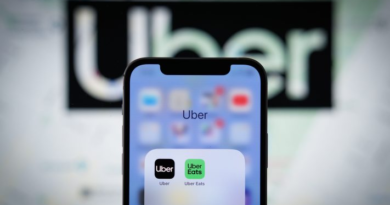Pornhub owner pays US government $1.8M to resolve sex trafficking probe
Pornhub’s parent company Aylo Holdings will pay $1.8 million to the U.S. government to resolve a charge of profiting off of sex trafficking. The company, formerly known as MindGeek, will enter a deferred prosecution agreement, which means that a monitor will be appointed to oversee Aylo and its compliance efforts for three years.
Pornhub and other adult content sites owned by Aylo have come under fire for a history of negligence in moderating third-party uploads of adult content. In the worst cases, this can mean that victims of sex trafficking are portrayed in these adult videos against their will, or even without their knowledge.
This particular probe by the Eastern District of New York’s Attorney’s Office focuses on a network called GirlsDoPorn (GDP), which has been posting videos on Pornhub and other Aylo websites since 2009. By 2019, a federal grand jury in the Southern District of California indicted GDP for sex trafficking, among other charges. But according to Aylo’s own court documents, filed this week, Aylo profited off of GDP’s content. The authorities wrote in a press release that Aylo “knew or should have known” that it was hosting videos wherein many women did not know they were being filmed, or didn’t know that these videos would be shared with the masses. The release also says that many of these women had submitted complaints to Aylo between 2016 and 2019, which states that the videos were posted without their consent. But it wasn’t until several months after GDP was found guilty of sex trafficking that the network’s videos were removed from Pornhub and other Aylo sites.
“This resolution will not only provide oversight over one of the largest online content distributors in the world and ensure the company’s lawful behavior, but it will also develop industry-wide standards for safety and compliance,” said U.S. Attorney Breon Pearce in a statement.
In 2020, Pornhub introduced a number of new features, like banning video downloads and requiring users to be verified in order to post videos. The platform also hired a law firm, Kaplan Hecker & Fink LLP, to conduct an independent review of the company’s content compliance.
The newly renamed Aylo has had a tumultuous few years. The company was sold to a brand new private equity firm, the strategically named Ethical Capital Partners, and before that, MindGeek’s CEO and COO both left the company.
Earlier this week, Pornhub, Stripchat and XVideos were added to a list of platforms subject to the strictest regulation under the European Union’s Digital Services Act (DSA). Among other safety measures, the act requires platforms to comply with certain child protection provisions. Once the EU’s code of conduct for age-appropriate design is finalized, this could mean that these platforms have to enact hard age checks. That means that users would have to verify their age and identity by official means (not just checking a box that says you’re an adult).
Already in the U.S., a number of states, including Louisiana, Mississippi, Virginia and Utah have imposed requirements for adult websites to conduct age verification checks in order to grant users access.
When one of these measures first went into effect in Louisiana, Pornhub required visitors to verify their age with the LA Wallet app, a digital wallet for Louisiana state driver licenses. But once these laws expanded to other states, Pornhub chose to block access in those places entirely.
“Since [adding age verification], our traffic in Louisiana dropped approximately 80 percent,” Pornhub wrote in a statement. “Those people did not stop looking for porn. They just migrated to other corners of the internet that don’t verify age, that don’t follow the law, that don’t take user safety seriously, and that often don’t even moderate content.”
Privacy advocates have spoken out against these measures, citing the possible consequences of sharing your government ID in order to use the internet. Though these measures are intended to protect children, they have the unintended effect of compromising anonymity online. Plus, it’s not totally uncommon for hackers to breach government databases, and if these verification tools aren’t secure, this data of who’s accessing what kinds of content on the internet could easily fall into the wrong hands.
This puts lawmakers in a tricky position; it’s a challenge to push for internet regulation and safety without possibly creating a whole new slew of problems.




